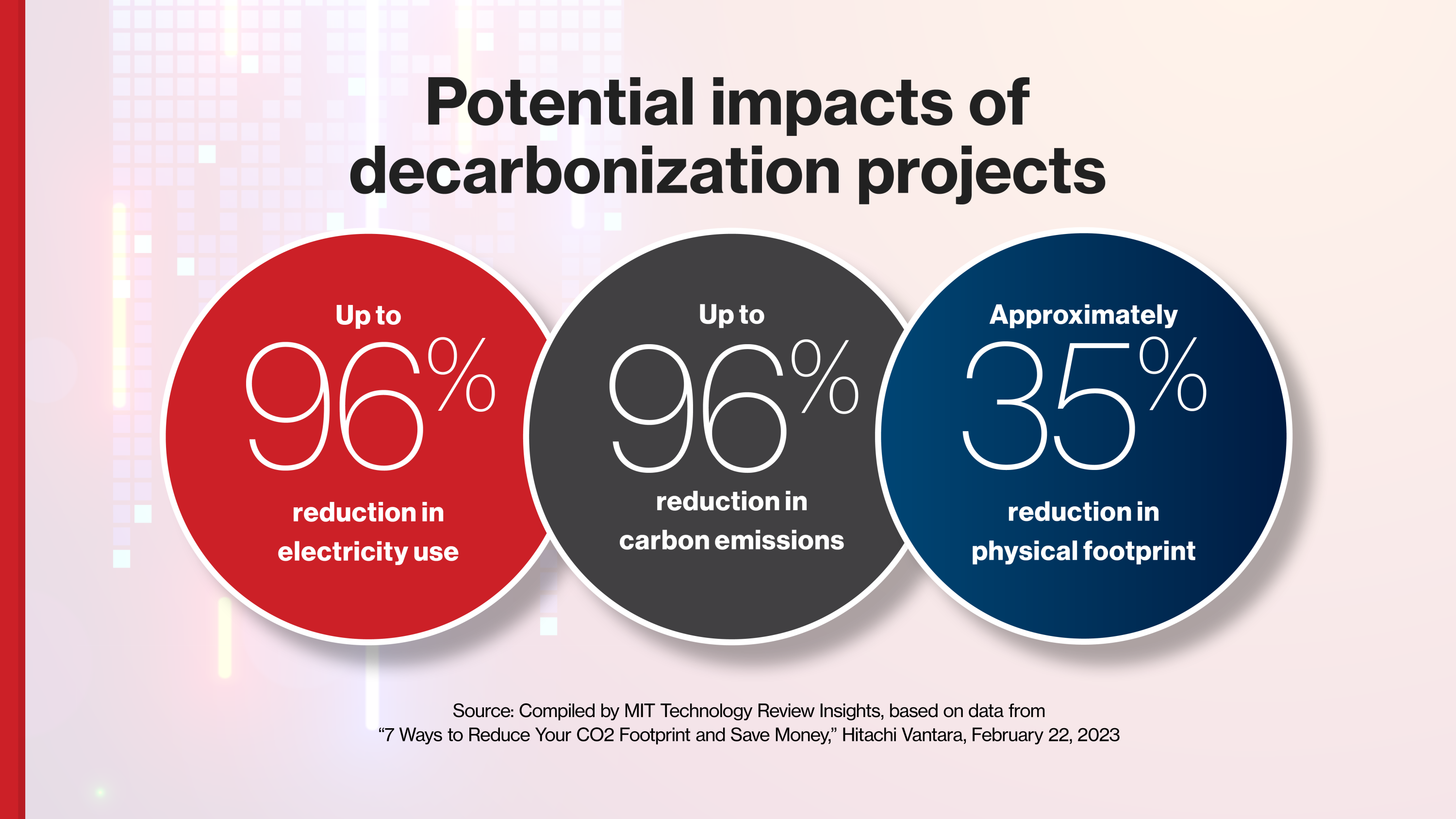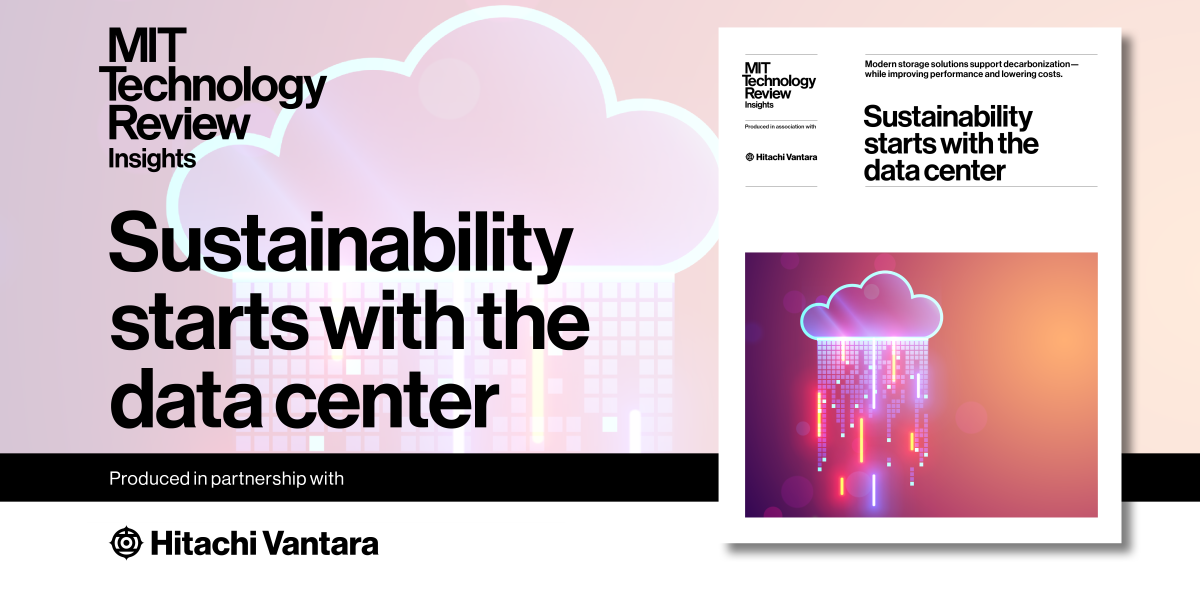[ad_1]
For information heart operators, choices for reinforcing sustainability embrace shifting power sources, upgrading bodily infrastructure and {hardware}, enhancing and automating workflows, and updating the software program that manages information heart storage. Hitachi Vantara estimates that emissions attributable to information storage infrastructure may be lowered as a lot as 96% through the use of a mix of those approaches.

Critics may counter that, although information heart decarbonization is a worthy social purpose, it additionally imposes bills that an organization centered on its backside line can ailing afford. This, nevertheless, is a shortsighted view.
Knowledge heart decarbonization initiatives can present an impetus that allows organizations to modernize, optimize, and automate their information facilities. This leads on to improved efficiency of mission-critical functions, in addition to a smaller, denser, extra environment friendly information heart footprint—which then creates financial savings through lowered power prices. And trendy information storage and administration options, past supporting sustainability, additionally create a unified platform for innovation and new enterprise fashions by means of superior information analytics, machine studying, and AI.
Dave Pearson, analysis vp at IDC, says, “Decarbonization and the extra environment friendly power utilization of the info heart are supported by the identical applied sciences that help information heart modernization. Modernization has sustainability objectives, however clearly it supplies every kind of enterprise advantages, together with enabling information analytics and higher enterprise processes.”
This content material was produced by Insights, the customized content material arm of MIT Expertise Evaluate. It was not written by MIT Expertise Evaluate’s editorial employees.
[ad_2]
